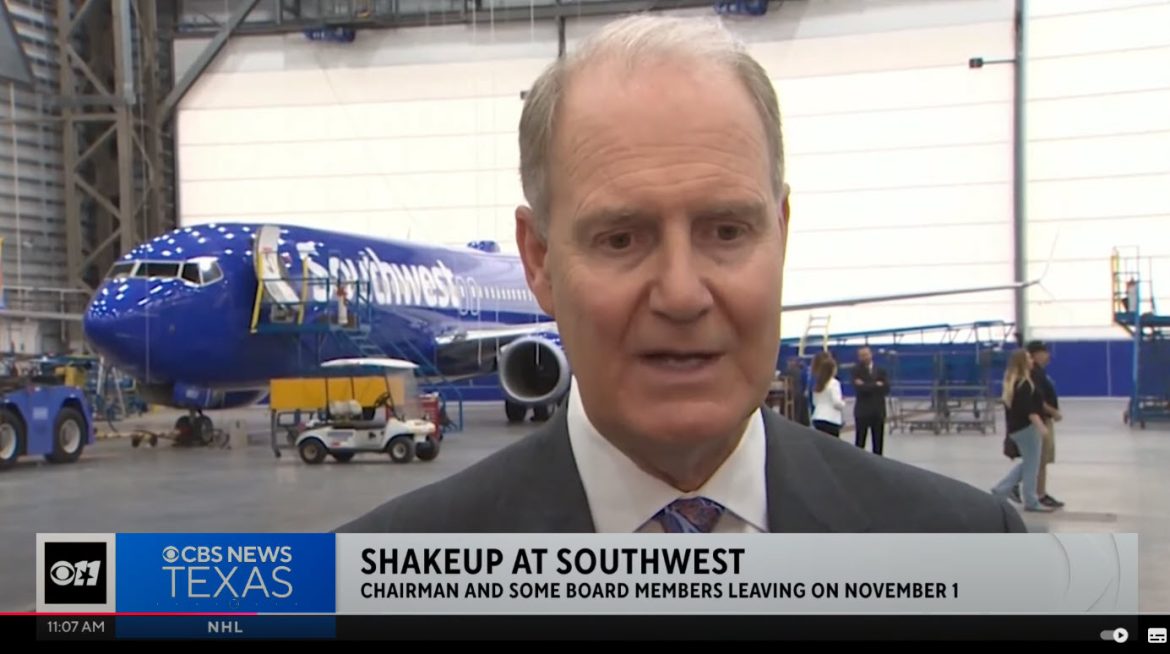Southwest Airlines is set for a significant leadership overhaul after reaching a settlement with activist investor Elliott Investment Management, marking a pivotal change for the Dallas-based airline. Southwest announced today that it will restructure its board, a move that will include the retirement of longtime CEO Gary Kelly along with six other board members. The decision follows several months of negotiations with Elliott, which has been pressuring Southwest for organizational changes aimed at enhancing corporate governance and streamlining the company’s strategic goals.
The leadership restructuring, slated to take effect in November, reflects a commitment from Southwest to meet the demands of an evolving airline market. While the airline has enjoyed robust passenger loyalty and financial stability, it has faced operational challenges in recent years, exacerbated by increased competition and heightened expectations from investors and customers alike. In a statement, Elliott Investment Management expressed optimism that the planned changes will bolster the airline’s future success and position it competitively in the industry.
Gary Kelly, who has been with Southwest for over three decades and served as CEO since 2004, leaves behind a legacy characterized by customer-focused policies and a period of substantial growth. Under his leadership, Southwest expanded to become the largest low-cost carrier in the United States, known for its no-frills service and dedication to affordability. However, Elliott and other stakeholders have argued that fresh leadership could better navigate Southwest’s current challenges, particularly in technology modernization, route expansion, and customer experience.
This restructuring comes amid broader scrutiny of the airline industry. Just yesterday, Fort Worth-based American Airlines was fined $50 million by the Department of Transportation over alleged mistreatment of passengers with disabilities, highlighting the increased regulatory pressures on airlines to improve service quality. Southwest itself has faced similar scrutiny, with calls for stronger customer support and transparency, especially following weather-related disruptions that left thousands stranded over the past year.
Industry analysts view the restructuring as a positive step for Southwest, noting that fresh leadership could improve operational efficiency, enhance investor confidence, and strengthen Southwest’s commitment to customer service. The move may also signal a trend toward increased accountability among airlines, particularly as investors push for improvements in corporate governance and board diversity.
As the November leadership changes approach, Southwest Airlines will be closely watched by both the public and the industry to see how the restructuring influences its operations, stock performance, and customer relations.



